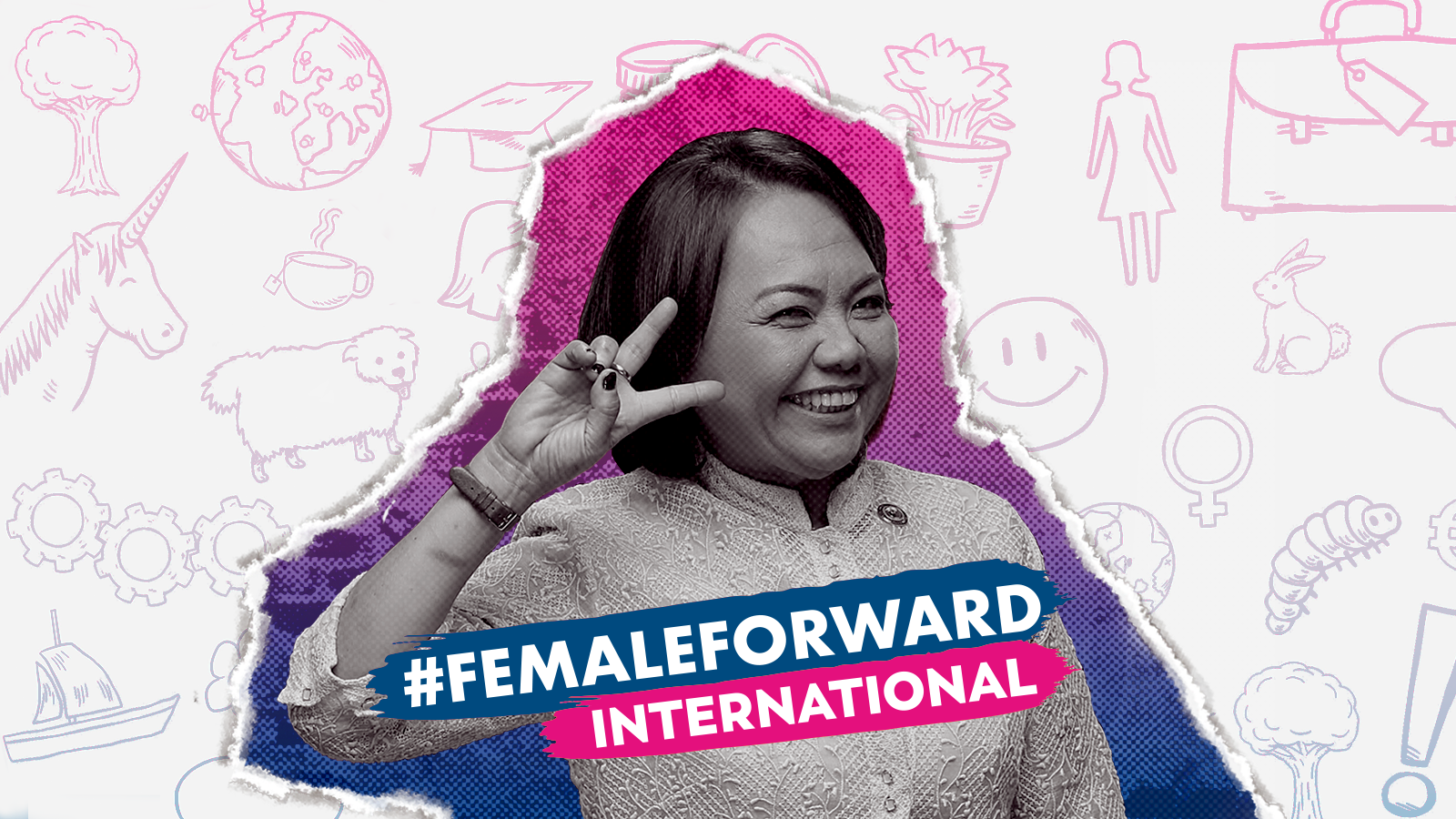Female Forward
Stronger Together

“Ayuz!” exclaims Philippine Governor Kaka Bag-ao of Dinagat Islands. Doing the peace sign and wearing a grin, she makes one feel that everything will be all right.
Known as the “dragon slayer,” Kaka is a living testament that anyone can triumph over adversity. From being a community organizer to becoming a lawyer, and now as a politician, she’s knocking down doors, and breaking down walls and ceilings to ensure that everyone gets an opportunity for a better life.
The real dragons in politics
Kaka never dreamt to be in politics. She thought her career was in mobilizing sectors like the urban poor women community. She was able to enter law school out of a scholarship, and instead of pursuing lucrative jobs, she practiced alternative lawyering. She took on pro-bono work, including the case of the Sumilao farmers in 2007. Serving as the lead counsel, Bag-ao joined the 1,700-kilometer walk from Bukidnon to Manila to enforce the farmers’ rights over their ancestral land. They won the case.
In 2010, Kaka assumed a seat in Congress as a party-list representative. In 2013, she ran for representative of Dinagat Islands under the Liberal Party. Dinagat is a province in the southern region of Mindanao, where she won against a member of a prominent political clan that had ruled the area since 1960s. Her victory earned her the monicker “dragon slayer.”
But the real dragons, she says, are not the powerful clans. She describes Dinagat Islands as rich in resources with beautiful seas and mountains, but “shackled by poverty, inequality, and underdevelopment.” Dinagat is currently the ninth poorest province in the whole country.
Kaka was reelected for a second term in 2016. It was also when the rambunctious Rodrigo Duterte was named Philippine president, making a sweeping change on the political climate. Kaka ran and won as liberal governor of Dinagat Islands in 2019.
Women’s rights at the time of misogyny
Bag-ao recalls that when she was still practicing as a lawyer, the most difficult situation was arguing about her background more than the merits of a case. “You’re seen not as a lawyer, but simply a woman standing up in court. The judge can spend more time in asking why you became a lawyer than in allowing to you to present the evidence in the case you’re handling,” says Kaka.
“When I became congresswoman, and now that I'm governor, I still suffer the same discrimination. People always tend to look at men as more responsible leaders and better in governance. They see a woman in politics as merely a substitute or a benchwarmer until the father, brother, or son can run for office again,” she shares.
This year, the Philippines’ ranking in the Gender Gap Report dropped from 8 to 16, attributed to the decline in political empowerment. The highest leader in the country vocally treats women as sex objects – a violation of human rights that is creeping into the system, and that Kaka is set to dismantle.
Courage, openness, solidarity
All the prejudice that she has experienced, as well as those by others only made her braver. She pledged to create platforms where voices can be amplified.
When she was in Congress, Kaka sponsored bills that aimed to close the gender gap as one of the pressing liberal issues in the country. She pushed for the Magna Carta for Women that sought to eliminate discrimination against women. She was also a staunch supporter of the Reproductive Health Bill, which secured universal access to information, birth control, and maternal care. Both legislations were passed into law. Kaka She also lobbied bills that required gender quota in leadership roles.
As governor, Kaka expands avenues so not just many, but all get an opportunity to advance in life. She doesn’t simply hold doors open, she breaks them down along with the walls and ceilings. She does this through her programs on participatory governance, equity and development, and human rights and dignity.
Kaka sees the potential of today’s youth, including girls who could be strong leaders if given an equal chance. She recognizes that poverty makes families prioritize sending the son to school, leaving out the daughter to do household work or to take care of her younger siblings. According to Kaka: “This practice should be removed, and this assertion should be made not only by leaders like me, but by all women and girls who also have their own dreams.”
For Kaka, a woman’s strength lies in the strength that they share with others. Their openness to listen to another perspective allow them better judgment. Their common anguish of being relegated to smaller roles pushes them to build a base where they can lift each other up. It’s women’s solidarity, not just with other women but with all human beings, that make them good leaders.
“Ayuz!”